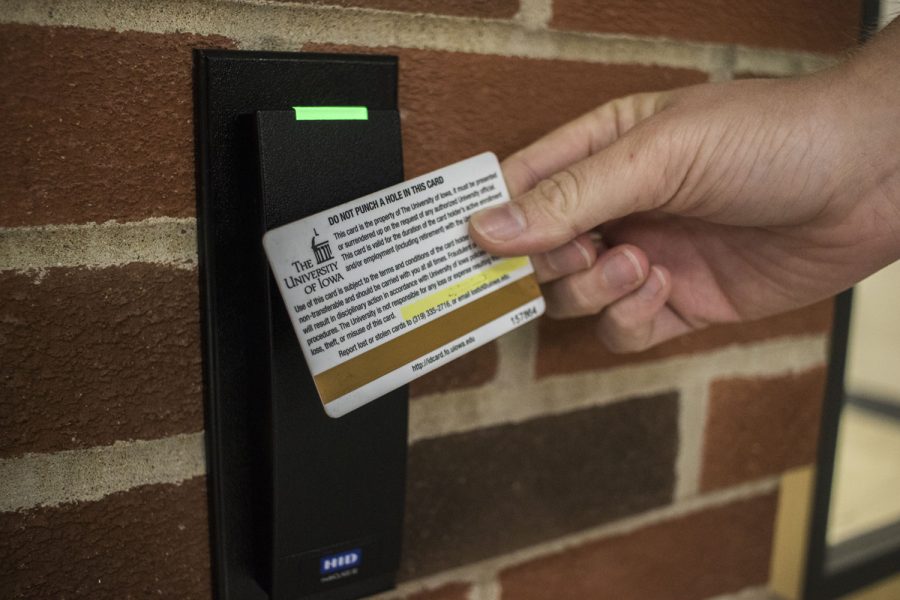The University of Iowa to use new technology for prevention of violence
The Division of Student Life and the Women Resource and Action Center plan to bring in Swipe technology to further sexual assault and violence prevention programs and bring new education to students.
In this photo illustration, a UI ID card is seen swiping into a door.
August 21, 2018
The implementation of Swipe check-in technology brings new promise for the Division of Student Life and the Women’s Resource & Action Center this year.
For Student Life, Swipe will assess student participation in extracurricular activities, workshops, and other campus resources. With this technology, the division can track both which and how many students get involved in campus programs.
Swipe technology already is in use by various departments, such as the Office of Academic Support and Retention, Academic Advising, and the School of Music.
“Swipe can be used by all students, faculty, and staff. Essentially, anyone with a Hawk ID can check in at a program or event that is utilizing Swipe,” said Teri Schnelle, the associate director of assessment and strategic initiatives for Student Life.
Extracurricular programs and events using Swipe will have a tablet with a card scanner attached so students have the option to use their ID card or Hawk ID login on the tablet.
The division then receives an attendance list and directory information, such as a student’s email and class standing. This information also provides the department a better understanding of which specific educational opportunities they have engaged in.
WRAC, which is a part of Student Life, will also benefit from the implementation of Swipe. Martha Pierce, the WRAC assistant director and Violence Prevention Program coordinator, said Swipe can improve violence prevention programs. It can also track which students are engaging in workshops to tailor educational experiences based on their prior participation in WRAC programs.
Additionally, the division can use Swipe to identify how much knowledge a student has on a particular workshop topic, Pierce said.
Each workshop builds upon the previous one, she said, and using Swipe to see what students already know will help WRAC perform more targeted outreach efforts.
“So, for instance, if I know that I’m not talking to students from a certain college with much frequency, I can know where on campus to direct my efforts,” Pierce said.
Although Swipe has not reached sexual-assault and bystander-intervention workshops, as in UI freshman programs such as On Iowa and Success at Iowa, students still recognize the importance of guaranteeing that others receive the education required to prevent violence on campus.
UI freshman Oliver Willham said he believes it’s difficult to ensure all students receive information from the workshops. He sees many students zoning out and not paying attention to the information being given, especially when first arriving to campus, he said.
“It’s something important enough that there should be some guarantee that people actually understand these lessons,” he said.



